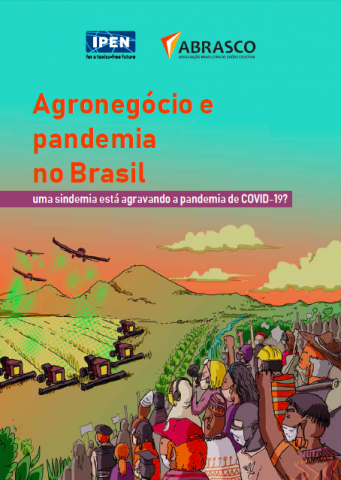Agribusiness and pandemic in Brazil

In recent years in Brazil, different economic sectors have been acting to modify Brazilian pesticides legislation, which would have serious impacts on human health and the environment. The COVID-19 pandemic slowed down legislative discussions; however, several sub-legal changes published by regulatory agencies have been put into practice. As a result, pesticide products that had already had their ban announced in Brazil, such as the herbicide paraquat, now do not have a definitive decision for use. Additionally, new pesticide products have been commercially released without proper and thorough information on the safety of chronic exposure; in particular, on the toxicological interactions of the mixture of active principles present in the formulated products.
The ABRASCO (Associação Brasileira de Saùde Coletiva) NGO in Brazil has undertaken a study examining the damages to health and the environment that may result from this deregulation scenario, focusing on the most vulnerable groups in both rural and urban use of agrochemicals. The findings are presented via an overview of these breakdowns during the time of the COVID-19 pandemic.
This project relates to Sustainable Development Goals #3, 6, 8, 14 and 16.
Special thanks to IPEN's Latin America & the Caribbean Regional Coordinator Fernando Bejarano and Regional Hub RAPAM for their essential contributions to the development and finalization of the project.
| Attachment | Size |
|---|---|
| 4.48 MB | |
| 11.45 MB | |
| 262.94 KB |
